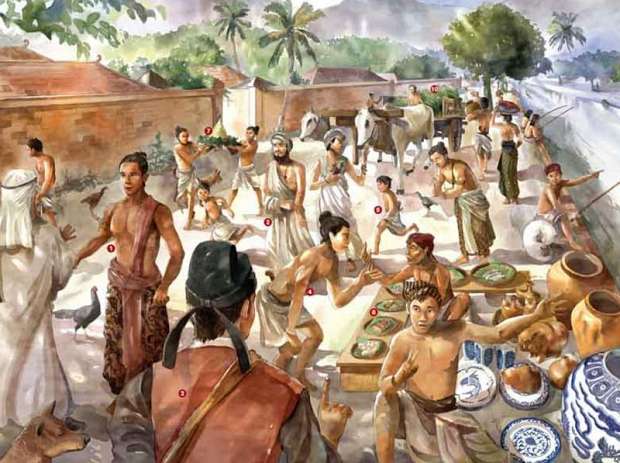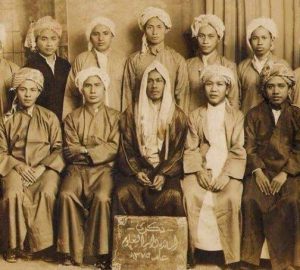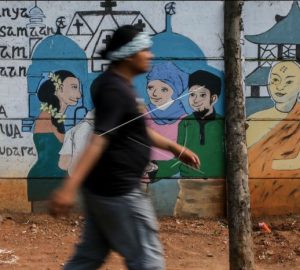Diversity has become the destiny of Indonesian people. All kinds of differences appear in one roof of the country, ranging from tribes, cultures, traditions, languages to beliefs.
This is actually not a new thing for the people of Indonesia, remembering that there has always been a communication between the people of different backgrounds. Of course they respect each other.
We certainly knew that before Islam arrived, people of Nusantara had strong beliefs in Hinduism and Buddhism, as well as other local religions, such as animism and dynamism.
The arrival of Islam did not cause riots that started bloodshed. Not at all. The presence of Catholics and Confucians were also welcomed by the archipelago kings. They did not reject or even drive them away.
Quoting Vincent Le Blanc, a French traveler, Ayang Utriza Yakin convinced that the Banten Sultanate at the time of Sultan Abdul Mafakhir Mahmud Abdul Kadir (1596-1651) gave permission for Catholics to carry out their worship.
Sultan Ageng Tirtayasa’s father also treated the same thing with the Chinese community. He allowed the establishment of temples as their place of worship.
This, according to Ayang, provided security for migrants from various countries. Of course the policy also had a positive impact on the security of its citizens in Banten. In fact, thanks to that security, many traders from outside the archipelago came to make Banten one of the archipelago’s big trading centers.
This also happened in Makassar. One of the sultans, according to Nicolas Gervaise, a French priest living in Thailand, was very tolerant by allowing Portuguese Catholics to carry out their worship in public areas. In fact, the Sultan helped establish a church for them.
The kingdom of Bima also did not discriminate between people based on their religion. They were all treated all the same before the law. One of the articles of the Bandar Bima Law, which was established on Tuesday, March 25, 1760, states that customs and excise to Christians, even though they were Dutch, and Muslims were the same.
“As for the Christian, even though they were Dutch, were subject to excise duty, if the charge of ten koyan was ten real, then the charge of twenty koyans was twenty real. And then the duty to trade in Islam was also following the koyan.” (Henry Chamber-Loir and Siti Maryam R. Salahuddin (ed.), Bo ’Sangaji Kai Records of the Kingdom of Bima. Jakarta: EFEO and YOI. 2012, p. 108)
Sunan Ampel also received treatment that was not much different from the two stories above. He was given land by King Majapahit to develop Islam in the Ngampel Denta area, Surabaya. Agus Sunyoto, in Atlas Walisongo, citing De Graaf and Pigeaud, revealed that the Wali named Raden Rahmat was appointed as the imam of the Surabaya Mosque by Pecat Tandha in Terung named Arya Sena.
From the stories above, we know that our ancestors actually appreciated and respected the beliefs of others, our brothers of countrymen.
This is what K.H Achmad Shiddiq, Board of Directors of the Nahdlatul Ulama (PBNU) from 1984 to 1991, referred to as the ukhuwah wathaniyah, a brotherhood of fellow nationals. We may have different views on something, but above all, we are all human. Differences in beliefs do not dampen brotherhood because kinship ties will produce our warmth, security, and comfort in carrying out our daily lives.
Practices like those of previous sultans emphasized that we no longer need to argue about pluralism, establish relationships of life with people and other people whose beliefs are different from us. That difference must give birth to a synergy to build a more powerful country.
Of course we remember that Allah Almighty created us different not to insult, curse, rebuke, or bully one another. Allah Almighty asks us to Li ta’arafu, getting to know each other.
Have we known our brothers who have different beliefs?
Artikel ini juga tersedia dalam bahasa:
 Indonesian
Indonesian





